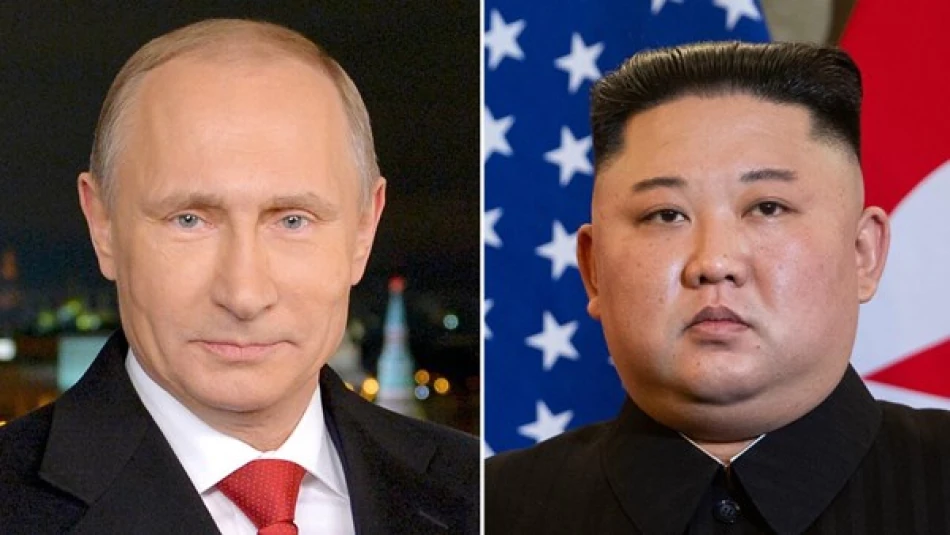
Putin and Kim Vow to Deepen Collaboration in Landmark Telephone Talks
Putin and Kim Jong-un Reaffirm Alliance Days Before Critical Alaska Summit
Russian President Vladimir Putin and North Korean leader Kim Jong-un used a Tuesday phone call to strengthen their strategic partnership just days before Putin's high-stakes meeting with Donald Trump in Alaska. The timing suggests Moscow is consolidating its authoritarian alliances while preparing for potential Ukraine negotiations with the new U.S. administration.
Strategic Partnership Takes Center Stage
According to North Korea's state news agency, both leaders praised their comprehensive 2024 strategic partnership agreement during the call. The pact covers "all areas" of cooperation, including a mutual defense treaty that essentially commits each nation to military support if the other faces external aggression.
This defense clause represents a significant escalation from previous Russia-North Korea agreements, effectively creating a military bloc that challenges U.S. influence in both Eastern Europe and the Korean Peninsula simultaneously.
Timing Reveals Strategic Calculations
The phone call's timing—just days before the scheduled Friday summit between Putin and Trump in Alaska—appears carefully orchestrated. Putin is likely demonstrating to Trump that Russia has viable alternatives to Western partnerships, potentially strengthening his negotiating position on Ukraine.
For Kim Jong-un, the public reaffirmation serves dual purposes: it signals continued backing from a nuclear superpower while potentially positioning North Korea as a spoiler in any U.S.-Russia détente that might emerge from the Alaska talks.
Ukraine Negotiations in Focus
The Alaska summit represents Trump's first major foreign policy test, with Ukraine ceasefire discussions expected to dominate the agenda. Putin's pre-summit outreach to Kim suggests Russia views its Asian partnerships as leverage in these negotiations.
This dynamic mirrors Cold War-era triangular diplomacy, where superpowers used third-party relationships to gain advantage in bilateral negotiations. However, today's version involves a more complex web of economic sanctions, military conflicts, and nuclear proliferation concerns.
Implications for Global Security Architecture
The Russia-North Korea partnership represents more than bilateral cooperation—it signals the emergence of an alternative security architecture challenging the U.S.-led international order. Unlike China's more cautious approach to international partnerships, this alliance openly embraces confrontation with Western institutions.
The mutual defense treaty particularly concerns security analysts, as it could theoretically drag Russia into a Korean Peninsula conflict or pull North Korea into broader European security disputes.
Economic Dimensions
Beyond military cooperation, the partnership provides North Korea with crucial economic lifelines through Russian energy supplies and trade routes that circumvent international sanctions. For Russia, North Korean weapons supplies have proven valuable in the Ukraine conflict, despite violating multiple UN Security Council resolutions.
This sanctions-busting cooperation demonstrates how authoritarian states can create parallel economic systems that reduce the effectiveness of Western financial pressure—a model that could inspire other sanctioned nations.
Most Viewed News

 Layla Al Mansoori
Layla Al Mansoori






